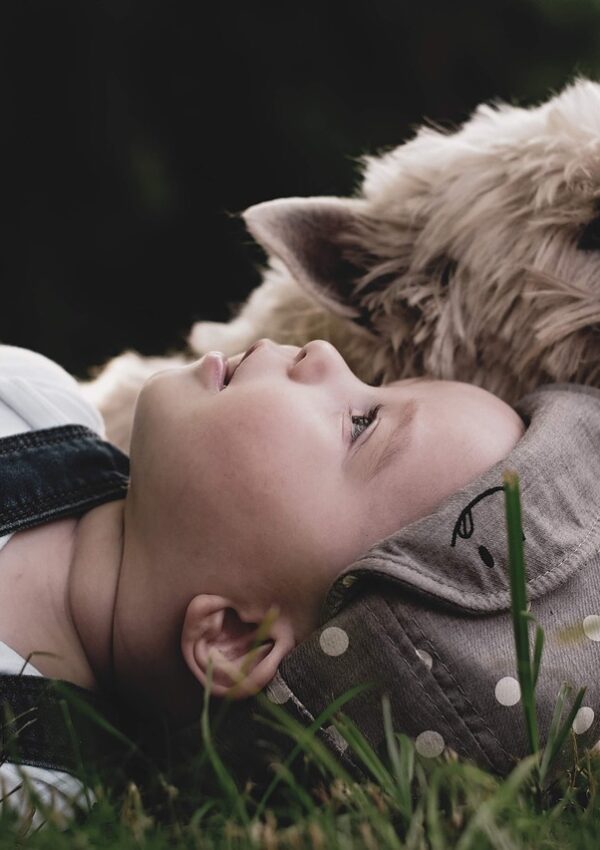For parents drawn to a touch of magic, a world of whimsical baby girl names awaits—a delightful mix of charm, magic, and enchantment
These names carry a sense of whimsy, making them a perfect name choice for parents who want something unique yet meaningful.
JUMP TO: List of Whimsical Baby Girl Names
In recent years, whimsical baby names have gained popularity, especially in the United States. These names often are often inspired by nature, mythology, and magic.
From Greek mythology, nature-inspired names, flower names, and even Elvish names, they conjure images of moonlit forests, blooming meadows, or celestial realms.

Some might prefer ethereal names that feel light and airy, while others might lean toward witchy names or fairy names with a mystical edge.
Whether you’re wanting a long and elegant name with a deep meaning, or one that feels like it was plucked straight out of the pages of a storybook, whimsical names have something to offer every parent.
Check out the list of whimsical baby girl names below.
Whimsical Baby Girl Names
- Arabelle – French
- Lilaith – Hebrew
- Elowen – Cornish
- Seraphina – Hebrew
- Isolde – Celtic
- Calliope – Greek
- Eira – Norse/Welsh
- Zephyra – Greek
- Amorette – French
- Mirabelle – Latin/French
- Ophelia – Greek
- Calista – Greek
- Sylvie – French
- Althea – Greek
- Delphine – Greek/French
- Lyric – English
- Evadne – Greek
- Juniper – English/Latin
- Coralie – French/Greek
- Azalea – English (nature-inspired)
- Fawn – English
- Primrose – English
- Clementine – Latin/French
- Avalon – Celtic/Welsh
- Saffron – English (nature-inspired)
- Lumi – Finnish
- Ondine – Latin/French
- Marigold – English (nature-inspired)
- Amaryllis – Greek
- Isadora – Greek
- Seren – Welsh
- Elara – Greek (mythology)
- Solene – French
- Aveline – French
- Fenella – Irish/Scottish
- Rosamund – Germanic
- Cassia – Greek/Latin
- Thalassa – Greek
- Peony – English (nature-inspired)
- Lorelei – German
- Fiorella – Italian
- Odetta – French/Germanic
- Selene – Greek
- Lilivere – Invented (inspired by “Lily” and “Guinevere”)
- Daphne – Greek
- Avienne – French (modern)
- Melisande – French
- Emberlyn – English (modern)
- Zephyrine – Greek/French
- Leocadia – Greek/Latin
- Iridessa – Latin/Greek (inspired by “iris”)
- Persis – Greek/Persian
- Orianna – Latin
- Vespera – Latin
- Euphemia – Greek
- Floralie – French
- Araminta – English (invented, 18th century)
- Celestia – Latin
- Endellion – Cornish
- Nymphaea – Greek (means “water lily”)
- Ceridwen – Welsh
- Acantha – Greek (means “thorn” or “spine”)
- Starling – English (nature-inspired)
- Delyth – Welsh
- Guinevere – Welsh
- Tullia – Latin
- Anemone – Greek (flower-inspired)
- Chrysanthe – Greek (means “golden flower”)
- Leontine – Latin/Greek
- Fiora – Italian
- Galadriel – Invented (J.R.R. Tolkien, Elvish-inspired)
- Elysia – Greek
- Amelina – Germanic
- Zinnia – English (flower-inspired)
- Aisling – Irish (means “dream” or “vision”)
- Yvaine – Scottish (inspired by Arthurian legend)
- Calypso – Greek (mythology)
- Alethea – Greek
- Lirienne – Invented (Elvish-inspired)
- Eulalia – Greek
- Ondina – Spanish/Italian (derived from Latin unda, “wave”)
- Rosabella – Latin/Italian
- Zorina – Slavic
- Serenella – Italian
- Olivette – French
- Zaira – Arabic
- Parisa – Persian
- Nerissa – Greek (mythology)
- Jessamine – Persian/French (derived from “jasmine”)
- Briony – English (nature-inspired, from “bryony” plant)
- Avelina – Latin
- Sabella – Latin/Italian
- Thessaly – Greek (region in Greece)
- Lenore – French/Greek (from “Eleanor”)
- Floriana – Latin
- Elsinore – Danish/Scandinavian (place name)
- Tamsin – English (short form of Thomasina)
- Isabeau – French
- Elsinia – Invented (inspired by “Elsa” and “Ainsley”)
- Luthien – Invented (J.R.R. Tolkien, Elvish-inspired)
- Meliora – Latin (means “better” or “for improvement”)
- Faelina – Invented (Elvish-inspired)
- Zephyra – Greek (means “west wind”)
- Cressida – Greek (mythology and literature)
- Elspeth – Scottish (variant of Elizabeth)
- Eowyn – Invented (J.R.R. Tolkien, Old English-inspired)
- Sorrel – English (nature-inspired, herb name)
- Lucinda – Latin
- Ariadne – Greek (mythology)
- Corisande – French
- Islianne – Invented (inspired by “isle” and “Anne”)
- Rosalind – Germanic/Latin
- Thea – Greek
- Maelis – French
- Halcyon – Greek (mythology, means “kingfisher bird”)
- Viviette – French/Latin
- Esmeray – Turkish (means “dark moon”)
- Cassiopeia – Greek (mythology)
- Ferelith – Scottish (means “true sovereignty”)
- Ione – Greek (means “violet flower”)
- Morwenna – Cornish/Welsh
- Lucienne – French
- Astoria – Greek/Latin (place name)
- Sapphire – Hebrew/Greek (nature-inspired, gemstone)
- Nimue – Welsh (Arthurian legend, Lady of the Lake)
- Isaline – French (diminutive of Isabelle)
- Thalia – Greek (mythology, muse of comedy and poetry)
- Selinia – Invented (inspired by “Selene,” Greek moon goddess)
- Delara – Persian (means “adornment of the heart”)
- Lilac – English (nature-inspired, flower name)
- Camellia – English/Latin (flower name)
- Aurelia – Latin (means “golden”)
- Violetta – Italian
- Maerwen – Welsh (means “fair maiden”)
- Elenora – Italian/Spanish (variant of Eleanor)
- Eirlys – Welsh (means “snowdrop flower”)
- Nerina – Greek (means “sea nymph”)
- Sylviana – Latin (means “from the forest”)
- Evanthe – Greek (means “fair flower”)
- Orithyia – Greek (mythology, goddess of cold mountain winds)
- Elowynne – Invented (variant of “Elowen”)
- Lyra – Greek (constellation and harp)
- Azura – Persian/English (means “sky blue”)
- Galene – Greek (mythology, goddess of calm seas)
- Fioralba – Italian/Albanian (means “flower of dawn”)
- Junia – Latin (Roman origin)
- Mirna – Slavic/Irish (means “peaceful”)
- Sabine – Latin (ancient Roman tribe name)
- Roselle – French (means “little rose”)
- Ellowyn – Invented (variant of “Elowen”)
- Amoret – French (means “little love”)
- Ismena – Greek (means “knowledgeable”)
- Lunaria – Latin (flower name, also means “moonlike”)
- Philomela – Greek (mythology, means “lover of song”)
- Acantha – Greek (means “thorn”)
- Eirene – Greek (mythology, goddess of peace)
- Noor – Arabic (means “light”)
- Florinia – Latin (means “blooming”)
- Ysabeau – French (medieval variant of Isabelle)
- Odette – French
- Meliora – Latin (means “better”)
- Cerelia – Latin (means “of the springtime”)
- Lavandula – Latin (flower name, lavender)
- Perdita – Latin (means “lost,” famously used in Shakespeare’s The Winter’s Tale)
- Amaline – Germanic/French (variant of Amalia)
- Cymbeline – Latin (inspired by Shakespeare’s Cymbeline)
- Eulalie – French (derived from Greek, means “sweet-speaking”)
- Damaris – Greek (New Testament name)
- Zephyra – Greek (means “west wind”)
- Lunette – French (means “little moon”)
- Arden – English (means “valley of the eagle”)
- Sable – English/French (means “black, dark”)
- Marceline – French (means “little warrior”)
- Astraea – Greek (mythology, goddess of justice and innocence)
- Ondria – Invented (variant of Ondine)
- Fenja – Scandinavian (means “peace” or “protection”)
- Petronella – Latin
- Violaine – French (means “violet”)
- Amidala – Sanskrit-inspired (means “beautiful flower garland”)
- Cybele – Greek (mythology, goddess of fertility and nature)
- Loretta – Italian/Latin
- Sapphira – Greek/Hebrew (means “sapphire”)
- Idalia – Greek (mythology, means “behold the sun”)
- Gwyneira – Welsh (means “white snow”)
- Astrid – Scandinavian (means “divinely beautiful”)
- Minerva – Latin (Roman mythology, goddess of wisdom)
- Rosavine – Invented (from “rose” and “vine”)
- Freyalise – Scandinavian-inspired (blending “Freya” with Elvish sounds)
- Maelisande – French (variant of Melisande)
- Capella – Latin (star name)
- Florimel – French/Latin (means “flower honey”)
- Iskra – Slavic (means “spark”)
- Verily – English (means “truly”)
- Selesta – Latin/Spanish (means “heavenly”)
- Nyssa – Greek (means “goal” or “beginning”)
- Lucilla – Latin (means “little light”)
- Melusine – French (mythological water spirit)
- Ottilie – German/French (means “prosperous in battle”)
- Leilani – Hawaiian (means “heavenly garland of flowers”)
- Callidora – Greek (means “gift of beauty”)
Want more inspiration? Check out a list of ocean-inspired baby names.
- Mireille – French (means “to admire”)
- Ivara – Scandinavian (means “archer”)
- Esmaria – Invented (blend of Esme and Maria)
- Clio – Greek (mythology, muse of history)
- Solana – Spanish (means “sunlight”)
- Ilythia – Greek (mythology, goddess of childbirth)
- Ambria – Latin/Italian (means “from the region of Ambra”)
- Nerida – Greek (means “sea nymph”)
- Celestine – Latin (means “heavenly”)
- Aven – English/Irish (nature-inspired, from “mountain avens”)
- Illyria – Greek (historical region in the Balkans)
- Auralie – Invented (variant of “Aurora” and “Amelie”)
- Hespera – Greek (mythology, goddess of the evening star)
- Zephira – Greek (means “west wind”)
- Fauna – Roman mythology (goddess of fertility and animals)
- Edelweiss – German (nature-inspired, Alpine flower)
- Lorien – Invented (J.R.R. Tolkien, Elvish name)
- Sibylla – Greek/Latin (means “prophetess”)
- Ardith – Hebrew (means “flowering field”)
- Violeta – Spanish/Latin (means “violet flower”)
- Cambria – Latin (Roman name for Wales)
- Freesia – English (flower-inspired)
- Elthia – Greek (means “healer”)
- Zarina – Persian (means “golden”)
- Aislinn – Irish (means “dream” or “vision”)
- Belladonna – Italian/Latin (means “beautiful lady”)
- Thessalia – Greek (place name, variant of Thessaly)
- Rowena – Germanic/Welsh (historical and literary use)
- Clarimond – Germanic (means “bright protector”)
- Oriana – Latin (means “dawn”)
- Lunara – Invented (inspired by “lunar”)
- Ismeria – Spanish (medieval saint’s name)
- Maris – Latin (means “of the sea”)
- Evadine – Greek (mythology, daughter of Poseidon)
- Sabra – Hebrew (means “prickly pear cactus”)
- Feronia – Roman mythology (goddess of wildlife and fertility)
- Alcyone – Greek (mythology, means “kingfisher”)
- Doveva – Hebrew (means “graceful as a dove”)
- Elanor – Invented (J.R.R. Tolkien, Elvish-inspired flower)
- Bellerose – French (means “beautiful rose”)
- Lysette – French (diminutive of Elizabeth)
- Arielle – French/Hebrew (means “lion of God”)
- Mariska – Hungarian (diminutive of Mary)
- Elysande – French (variant of Elsinore)
- Dione – Greek (mythology, mother of Aphrodite)
- Faerith – Invented (Elvish and “fairy”-inspired)
- Seraphine – Hebrew (means “burning one”)
- Isalie – French (modern invention)
- Alionor – Old French (medieval variant of Eleanor)
- Opaline – French (inspired by “opal”)
- Caelia – Latin (means “heavenly”)
- Fianna – Irish (legendary warriors)
- Delphinia – Greek (means “of the dolphin”)
- Zuleika – Arabic (means “brilliant and lovely”)
- Eirwyn – Welsh (means “white snow”)
- Olivine – Latin (gemstone-inspired)
- Sereia – Portuguese (means “mermaid”)
- Lavendel – German (means “lavender”)
- Minette – French (diminutive of Minerva)
- Callista – Greek (means “most beautiful”)
- Elestren – Cornish (means “iris flower”)
- Nyx – Greek (mythology, goddess of the night)
- Faylinn – Irish (means “fairy kingdom”)
- Melantha – Greek (means “dark flower”)
- Tindra – Swedish (means “to twinkle”)
- Ismay – English (medieval name)
- Ambrosine – Greek/Latin (means “immortal”)
- Soraya – Persian (means “princess” or “Pleiades constellation”)
- Rosavina – Invented (from “rose” and “vine”)
- Soline – French (means “sunlight”)
- Aubrielle – French (modern invention)
- Viatrix – Latin (means “voyager”)
- Ferelith – Scottish (means “true sovereignty”)
- Titania – Latin (Shakespearean, queen of fairies)
- Amarilis – Greek (variant of Amaryllis)
- Noelani – Hawaiian (means “heavenly mist”)
- Caprice – French/Italian (means “whimsical”)
- Zulema – Arabic (means “peace”)
- Isolda – Celtic/Germanic (Arthurian legend)
- Meliora – Latin (means “better”)
- Eseld – Cornish (means “beautiful one”)
- Cressida – Greek (Shakespearean and mythological)
- Eowen – Invented (variant of Eowyn, Tolkien-inspired)
- Bellatrix – Latin (means “female warrior,” also a star)
- Felicity – Latin (means “happiness”)
- Galadriel – Invented (J.R.R. Tolkien, Elvish-inspired)
- Idony – Norse (means “renewal”)
- Ysolde – Old French (variant of Isolde)
- Alva – Norse (means “elf”)
- Severina – Latin (means “stern” or “serious”)
- Fawnia – English (variant of “Fawn”)
- Cyrena – Greek (mythology, water nymph)
- Eliora – Hebrew (means “God is my light”)
- Loreth – Invented (inspired by “Lore” and “Beth”)
- Salomea – Hebrew (means “peaceful”)
- Meredith – Welsh (means “great ruler”)
- Aderyn – Welsh (means “bird”)
- Nissa – Hebrew (means “to test” or “sign”)
- Fiora – Italian (means “flower”)
The Allure of Magical and Mystical Names
Whimsical names often come with a sense of story—a past, a legacy, or a dream. Many parents are drawn to magical names with meaning, ones that spark curiosity and imagination.
Names inspired by Greek mythology often fall into this category, offering powerful associations with gods, muses, and mythical heroes.
Others might prefer Elvish names, which feel like they’ve come straight from a fantasy novel, adding a touch of magic to their little one’s identity.
For some parents, a whimsical name serves as an anchor for their child’s personality. Names that mean “fairy,” “moon,” or “star” are popular, while witchy names bring a playful edge.
Nature provides endless inspiration for whimsical names. From soft and delicate flower names like those of blooms in a garden to strong, elemental names inspired by the sea or forest, a whimsical nature name captures the magic of the world around us. Many of these names feel timeless, offering the perfect blend of modernity and tradition.
For parents who might not want a whimsical first name, using one as a middle name is a beautiful compromise.
Middle names allow you to add a touch of magic without overshadowing a simpler first name. They also open up endless possibilities for creative pairings, allowing you to blend whimsy with elegance or modernity.
Why Choose a Whimsical Name?
Parents often want a name that stands out, a name their child will treasure as part of their identity. Whimsical names offer:
- Uniqueness – Many whimsical names rank among the most unique names, making them less likely to appear in every classroom.
- Meaning – They are often rich with symbolism, from mystical names that evoke the stars to nature-inspired names that celebrate the earth.
- Timeless Appeal – Though unique, whimsical names often draw from ancient languages and cultures, ensuring they feel classic rather than fleeting.





